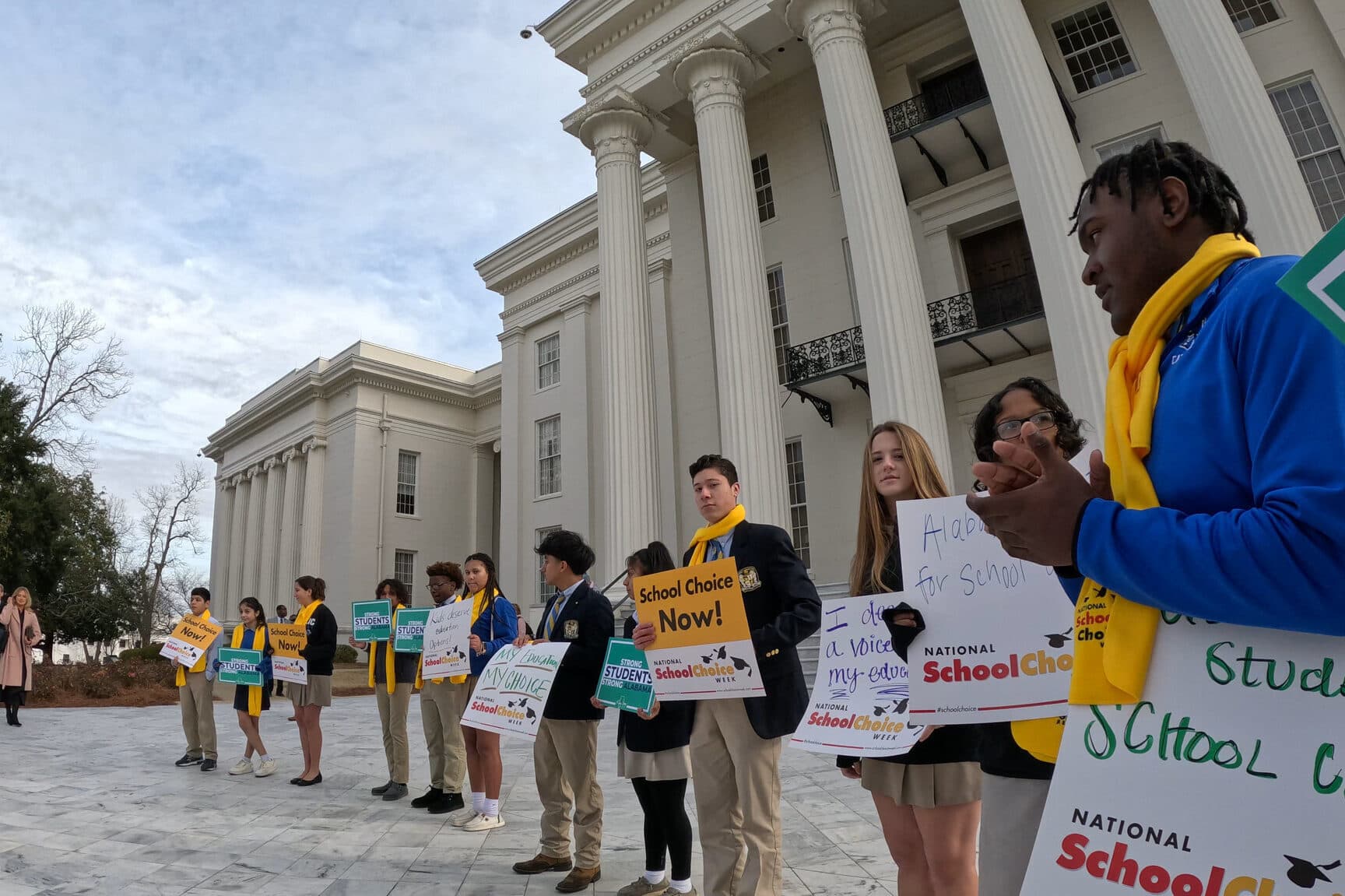MONTGOMERY — Members of the Senate Education Budget Committee will likely take a vote on legislation creating a new $100 million education savings account school choice program next week.
House and Senate education budget chairs State Rep. Danny Garrett (R-Trussville) and State Sen. Arthur Orr (R-Decatur) filed education savings account legislation called the Creating Hope and Opportunity for Our Students' Education (CHOOSE) Act last week.
Governor Kay Ivey has said the proposal is her top legislative priority in 2024. Legislators on the Senate Education Budget Committee held a public hearing on the bill Wednesday morning to hear from proponents and opponents.
Dalphine Wilson, mother of a 10th grader and graduate from Montgomery Catholic Preparatory School who used Accountability Act scholarships for tuition, told 1819 News after the public hearing, "I believe that the students in Alabama, the children in Alabama, deserve much better than what they're currently being offered."
"If they want to compete not only in the United States but in a global world. It's becoming so much smaller and when the world becomes that much smaller, it becomes that much more competitive. In order for Alabama students to feel competitive (and) in order for them to feel as if they're competent when they're seated in that classroom they need to know that they're about to be asked to perform. Whether or not it's note taking, study groups, lectures, responding to lectures, class participation, they all need to be freshman-year ready," she added.
The CHOOSE Act program would provide up to $7,000 per child enrolled at an accredited, participating private or public school through an education savings account funded by a new refundable income tax credit. Homeschooling families would receive up to $2,000 per homeschooler, with a $4,000 cap for families with more than one homeschooler, for eligible educational expenses. Families will begin participating in the program during the 2025-2026 academic year if the legislation is passed during the 2024 session.
If passed into law, in the first two years of the program, families with an income up to 300% of the federal poverty level, currently $93,600 for a family of four, will be eligible.
In the third year and beyond, any Alabama family will be eligible, placing the CHOOSE program on a pathway to becoming truly universal as the program grows.
Nick Moore, an education policy advisor for Ivey, said the legislation was part of Ivey's goal to be in the top 30 among states in education by 2030.
"The Governor feels that we can concurrently make historic and unprecedented investments in public education as is testified by this year's ETF and by the fact that during the Ivey administration we've seen year-to-year increases in the ETF, historic teacher pay raises this year, (and) having the starting teacher salary be the highest in our peer states in the Southeast," Moore said at the public hearing. "Also, recognizing the fact that during the Ivey administration again working with you, per-pupil spending in traditional district schools has increased over $1,500 per pupil, or over 30%, and the ETF itself has grown over $2.5 billion in the Ivey administration, or over 40%."
The CHOOSE Act appropriates at least $100 million to the education savings account program annually. Ivey has set aside $50 million for the fund in the Fiscal Year 2024 Education Trust Fund supplemental.
Moore said, "That's the Governor's vision for public district schools and that will continue."
"At the same time, we've got to recognize that our K-12 student population during the Ivey administration has shrunken by 1.2%. Also, it was great that we got our students back in school after COVID-19 and we've seen our NAEP scores go up during that period of time but we've got to sustain that momentum. The Governor believes that we can concurrently address and continue investing in our traditional public schools while also being a state that is recognized as having the most education freedom and choice options for families," he added.
Orr said he expected to vote on an amended version of the bill next week. Representatives from the Alabama Education Association, School Superintendents of Alabama and the Alabama Association of School Boards said they oppose the measure because the legislation does not cap ESA funding, and eligible private schools aren't subject to a testing mandate similar to public schools.
"It's no surprise that school boards are not a real enthusiastic supporter of this bill. I know that's not a shocker, but we do want to get the bill right. We do want to protect the ETF long-term and my concerns are looking at the financial issues long-term," Sally Smith, executive director of the Alabama Association of School Boards, said at the public hearing.
To connect with the author of this story or to comment, email caleb.taylor@1819News.com.
Don't miss out! Subscribe to our newsletter and get our top stories every weekday morning.










